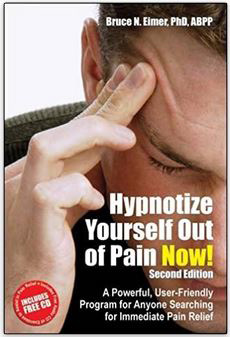Hypnosis is an evidenced-based treatment tool for pain control. Unfortunately, it is underused because few clinical health practitioners know how to use it fluently. Pain relief can be a topic we tiptoe; with so many treatment options, many people find themselves at the beginning, or in the thick of, discovering relief solutions. If you are interested in pursuing hypnosis as a potential solution for your persistent or chronic pain, we have developed a guide to this option.
Background
For over 200 years, the practice of hypnosis for pain management has improved the lives of many people suffering from persistent or chronic pain. There are many ways to treat pain, but each comes with its own warning label, leaving individuals to explore their options. We typically consider the use of non-steroidal anti-inflammatory drugs, such as Ibuprofen and Aspirin, but these can cause serious bleeding disorders and stomach damage. Opioids can be addictive and cause respiratory failure.
Medications are meant to suppress pain symptoms, rather than alleviate the underlying cause. The benefits are weighed against the potential side effects, resulting in a solution that will get you through the day, rather than living beyond your pain. One of the benefits of using hypnosis to control pain is that there is no risk of negative side effects.
How does it work?
There are a number of wonderful benefits to using hypnosis for pain control. It is a natural means of gaining pain relief with lasting results. Utilizing hypnosis will help you distract yourself from pain, channel it elsewhere, relieve suffering, and improve your body’s performance ultimately improving the quality of your life.
At home self-hypnosis
Pharmaceutical drugs, while effective at what they do, are an external agent. This means they are ingested or injected to modify biochemical and physiological processes. They may, for instance, block the receptors in your brain from receiving the pain signals. Self-hypnosis, or meditation, is an internal means of connecting with the unconscious or subconscious mind. These areas of our mind control our autonomic nervous system, which allows our basic life functions to operate and keep us alive.
Self-hypnosis meditation is an inner method of self-communication, it is safe; the unconscious mind will simply not accept suggestions that are consciously or subconsciously deemed harmful or unacceptable to you. It also means you can perform this method of pain relief at home as needed.
Please Note: Pain Control Hypnosis is NOT a substitute for appropriate medical evaluation, treatment, and care. Clinical Hypnosis can serve as a powerful supplement or complementary method to your ongoing medical care.
For 30 years, I have helped thousands of patients who suffered from persistent pain syndromes get pain relief and lead more fulfilling lives. If you would like to learn more about this practice or would like to schedule a free consultation appointment, visit us online or call our office today at (561) 377-1039.
Dr. Eimer proudly serves patients in and around Boca Raton, Delray Beach, Boynton Beach, Lake Worth, Wellington, West Palm Beach, Palm Beach Gardens, Jupiter, Deerfield Beach, Fort Lauderdale, Miami, and surrounding areas.




